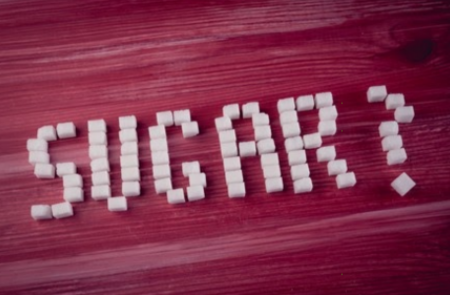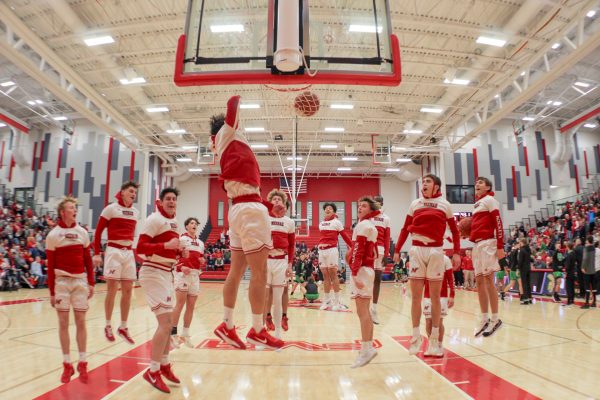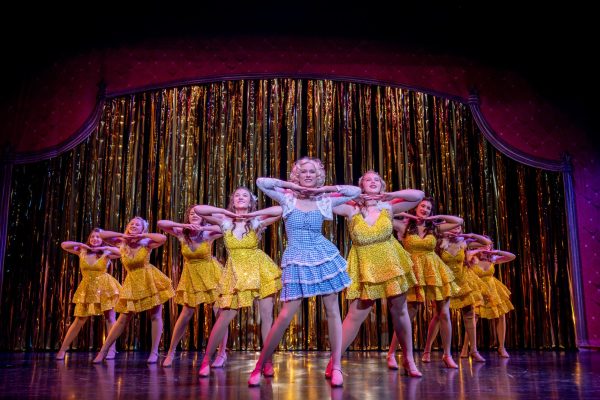Letter to Editor: End of Bake Sale Tradition
Dear Editor:
The school bake sale: a long time tradition has gone just a bit too far. During the month of December, especially near winter break, the frequency of bake sales becomes almost extreme, to the point where multiple groups of people fight for student’s money with the Salvation Army drive, the food drive, and even other bake sales. While this can be partially attributed to multiple Freshman Seminars putting off their service projects for too long, this brings up a valid point: Why host a bake sale in the first place? There is no question that it is not only a popular option, but a profitable one as well. With origins firmly planted in almost every fund-raiser to date, the bake sale sure seems like the first and best option for a fundraiser, with a variety of treats that cater to hungry students. This design, however, choice is becoming increasingly more flawed as time goes along, because of one big nationwide problem — the obesity epidemic.
The obesity epidemic, although nowadays being easily overshadowed by outbreaks of pathogenic disease, terrorist threats, and a debate over whether or not a Wal-Mart should be built in Green Bay (The latter of which is still being mentioned as recently as Dec. 8 according to WBAY 2 news). Not only is this still a prevalent problem, rate of obesity are even to this day steadily increasing. According to the The Washington Post, in June 2015 67 percent of women and 75 percent of men 25 and older are obese or overweight, with obese members of society actually outnumbering overweight people for the first time in America’s history. Many government programs exist to combat this problem, including Michelle Obama’s “Let’s Move!” program; however, their efforts are only marginally successful, with obesity rates still increasing to this day.
How this problem affects bake sales, however, is through new legislation passed in an increasing number of states to ban, or at least limit the bake sale. The Healthy Hunger-Free Kids Act, according to the USDA, is a plan that, for the first time in 30 years, will allow the government to control the food that is being sold on school grounds. It will allow states to either abide by the original law, causing bake sales themselves to be outright banned, unless they were to only sell healthier alternatives, or the states may make exemptions for the bake sales, allowing them to only be sold during certain times during the school year (Tennessee only allows 30 days of the whole school year to be used for bake sales, according to CBS News) or during certain times (many states hold the time where bake sales are applicable as being after 6:30 p.m, after all students have left and after-school activities have ended). To date, Wisconsin does not have any specific laws prohibiting bake sales, and in fact the state is making them easier, allowing them to sell goods without a processing license, according to WEAU.com. With new reforms across the country, that does not mean that Wisconsin will never put restrictions on what can be sold in schools. This means that the rampant NHS bake sales may soon be diminished, if not gotten rid of completely, within the next couple years, and, without any other plans, many clubs and school functions would lose major funding. What was originally a go-to operation will soon become a dry pit, however, no clubs have been even making an attempt to change from the bake sale to other methods of income. There is ,however, a solution to this not yet a problem, and that is to look toward other methods of gaining income.
More than one way for a club to gain income that is not related to throwing a bake sale on the same day that two other fundraisers are taking place exist. Clubs could sell other goods, not food, that are related to what makes them a club in the first place. For example, the world language clubs could sell art and other crafts in the style of the countries their languages are based in, instead of selling American pastries. One good example of this already taking place is the anime club that, alongside selling food and refreshments at the yearly diversity fair, sells pixel art and other handmade merchandise not only from anime, but also from various video game series. Other clubs, such as the SEA club, also practice similar methods, selling food from the region along with things like henna and traditional crafts. Culture from around the world, which cannot be simply explored through sampling food exists, and by offering these opportunities, booths have been widely popular. More clubs, preempting the move to healthier food options, should look into these different crafts as opportunities, in order to not only boost sales and the popularity of their booths.
The same goes for freshman seminars, who all seem to default back to the bake sale because it is “popular.” Clearly, one can see that these bake sales are also sparsely populated, with many of their products remaining unsold for days. If the seminars instead looked toward selling other materials, such as handicrafts, and even just something like coffee, anything unusual to gain attention, they would make much more profit and thus would be able to donate more to their own cause.
The death of the bake sale may be inevitable because of the new health regulations put in place by the USDA, but that does not mean the result would be entirely negative. Other opportunities can open up to these clubs and seminars that not only will freshen up the high school dynamic, but might also rake in more of a profit than having three bake sales on the same day.
Sincerely,
Madeline Kneeland, junior











